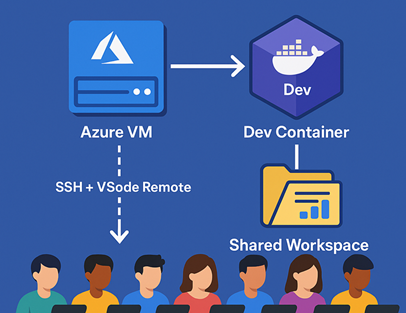Extracting GZip & Tar Files Natively in .NET Without External Libraries
Introduction
Imagine being in a scenario where a file of type .tar.gz lands in your Azure Blob Storage container. This file, when uncompressed, yields a collection of individual files. The trigger event for the arrival of this file is an Azure function, which springs into action, decompressing the contents and transferring them into a different container.
In this context, a team may instinctively reach out for a robust library like SharpZipLib. However, what if there is a mandate to accomplish this without external dependencies? This becomes a reality with .NET 7.
In .NET 7, native support for Tar files has been introduced, and GZip is catered to via System.IO.Compression. This means we can decompress a .tar.gz file natively in .NET 7, bypassing any need for external libraries.
This post will walk you through this process, providing a practical example using .NET 7 to show how this can be achieved.
.NET 7: Native TAR Support
As of .NET 7, the System.Formats.Tar namespace was introduced to deal with TAR files, adding to the toolkit of .NET developers:
System.Formats.Tar.TarFileto pack a directory into a TAR file or extract a TAR file to a directorySystem.Formats.Tar.TarReaderto read a TAR fileSystem.Formats.Tar.TarWriterto write a TAR file
These new capabilities significantly simplify the process of working with TAR files in .NET. Lets dive in an have a look at a code sample that demonstrates how to extract a .tar.gz file natively in .NET 7.
A Simple Example In .NET 7
Below is an example demonstrating the extraction of a .tar.gz file natively in .NET 7 in a simple console app to extract the contents of a .tar.gz file to a directory
1 | using System; |
You can also find this on GitHub Gist.
Wrapping Up
The introduction of System.Formats.Tar in .NET 7 marks a significant milestone for developers dealing with .tar.gz files. It provides us with the ability to decompress these file types natively, without relying on external libraries. This functionality is a game-changer as it reduces complexity, minimizes external dependencies, and enhances the versatility of .NET applications.
The new namespace System.Formats.Tar, along with the established System.IO.Compression, effectively handle TAR and GZip files. This considerably simplifies the process, making the .NET environment more self-contained and versatile.
References
- Thumbnail image [was taken from the DotNet brand repo]https://github.com/dotnet/brand)
- Main image generated by [was taken from the DotNet brand repo]https://github.com/dotnet/brand)
Extracting GZip & Tar Files Natively in .NET Without External Libraries


